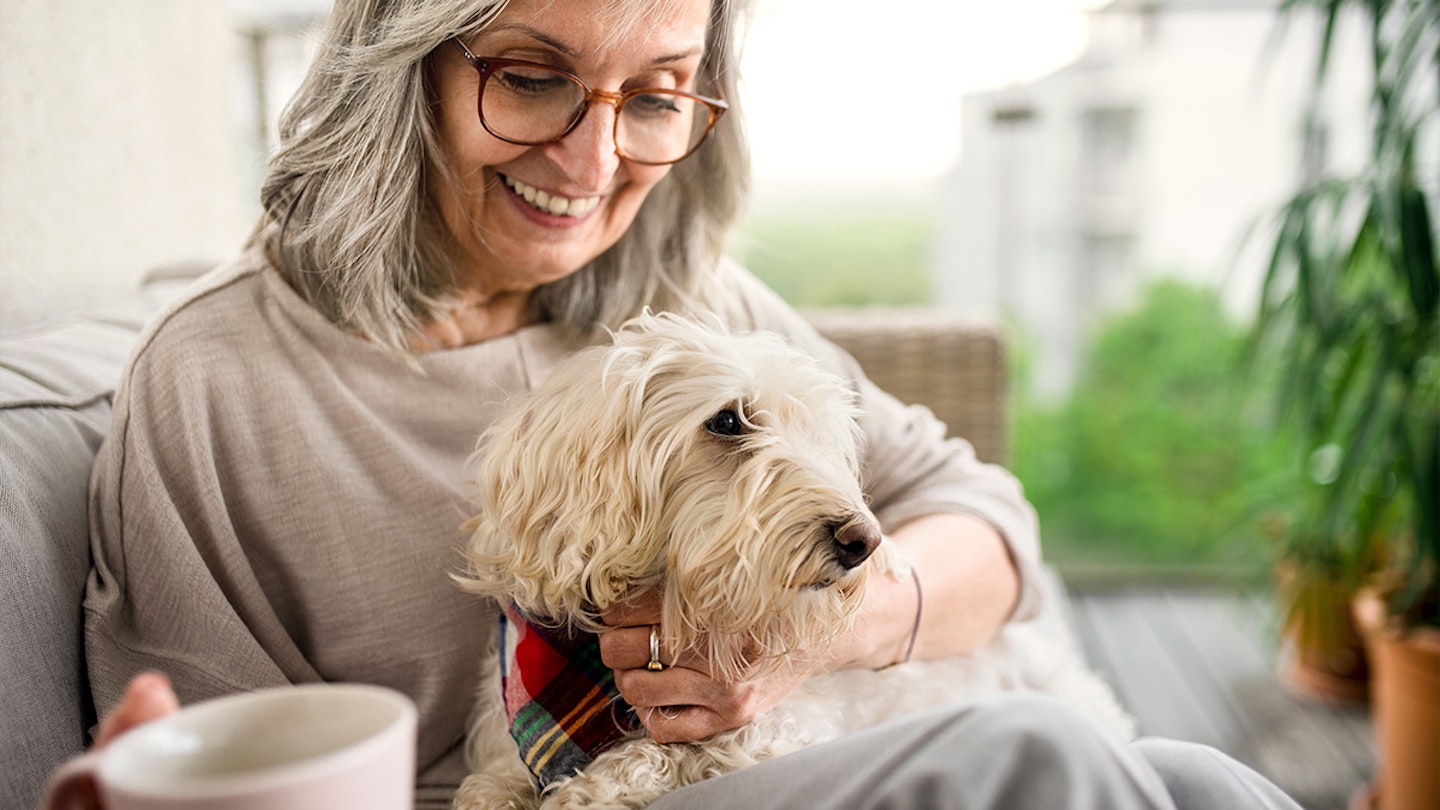There are many health benefits to having a dog. Just ask TV presenter Helen Skelton who massively relied on her dog during a difficult period. They can reduce our stress levels, promote better mental health and are good for our heart. Here are 8 ways you can benefit from a canine companion.
1. Dog ownership keeps you active
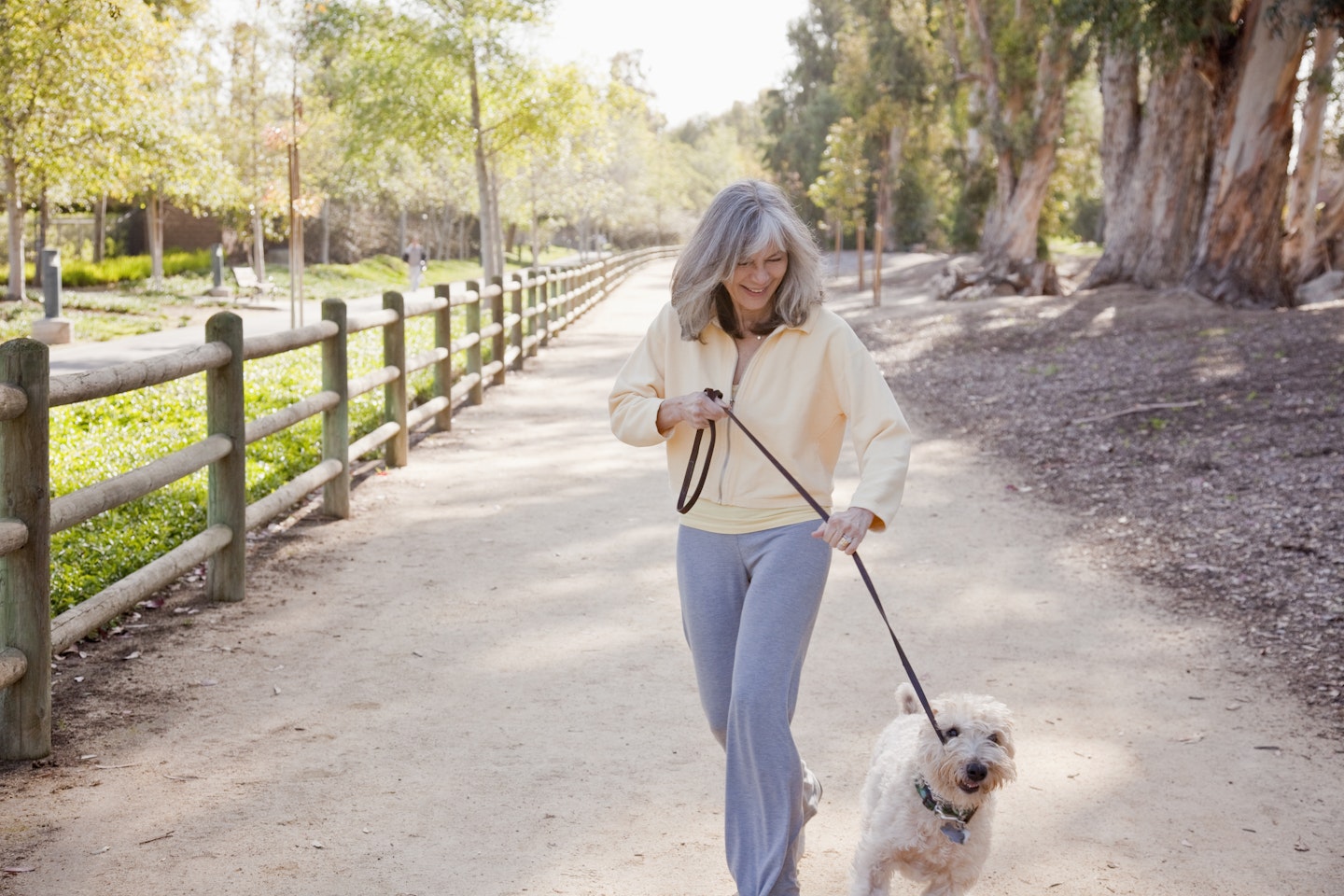
Owning a dog naturally will help you get more exercise. When you have a pet that depends on you to go for a walk, this will encourage you to get out and walk no matter the weather.
A daily walk is essential for dogs and although the length of the walk depends on their breed, age and size. It is important to bear in mind your dog’s exercise needs and not to over-exercise them if they are getting older.
Research has shown that daily dog walks can help you to lose weight. In 2010, one small study discovered public housing residents who walked dogs five times a week lost an average of 14.4 pounds over the year.
2. Dogs help with reducing stress
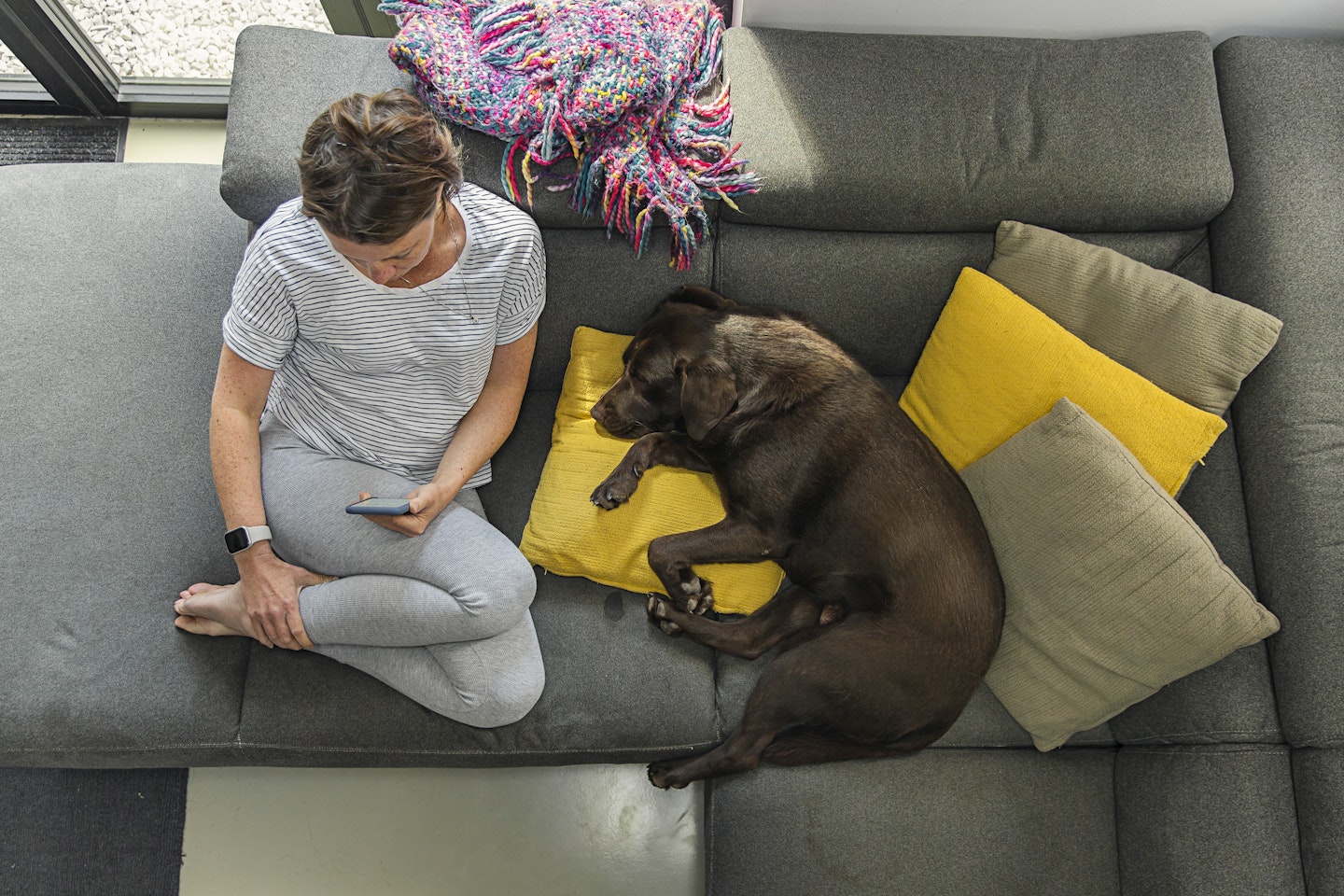
Canines are amazing company to alleviate stress and ease your anxieties. That is why therapy dogs are known to be so effective. Spending time with a dog can lower anxiety and blood pressure. This is due to the increase in the levels of serotonin and dopamine, the two happiness neurochemicals.
When people are doing stressful tasks, it has been discussed that they are able to perform better when there’s a dog around.
3. Canine companions are good for your heart health
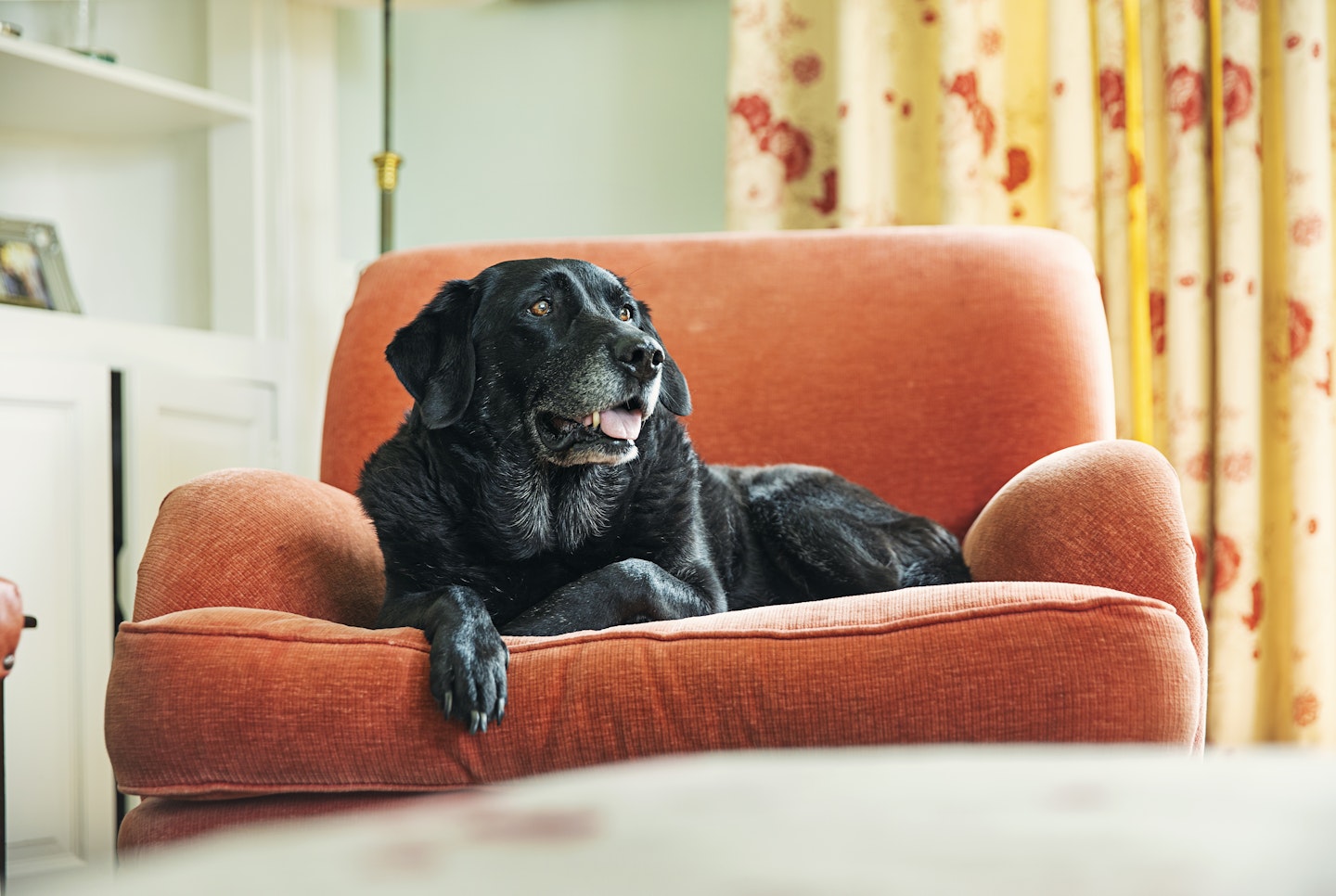
Dogs aren’t just loving companions, but they will actually make your heart stronger. There have been studies that link lower blood pressure, reduced cholesterol, less heart attacks and overall better cardiovascular health to owning a dog.
In a collection of studies published between 1950 and 2019, it shows that dog owners had a lower risk of death.
4. Dogs improve with our social life
As mentioned before, dogs will help you to get out of the house and stay active. When walking with your dog this will make you more approachable not only to fellow pet owners but to those around which is a great way of combatting loneliness.
As you age, it becomes harder to be acquainted with new people. Researchers have found that about 40 per cent of dog owners make friends more easily due to 4 in people saying that they speak with other dog owners during walks. Having a dog is always a topic of conversation and allows the owners to be a little more extroverted.
5. Having a dog as a pet gives you purpose
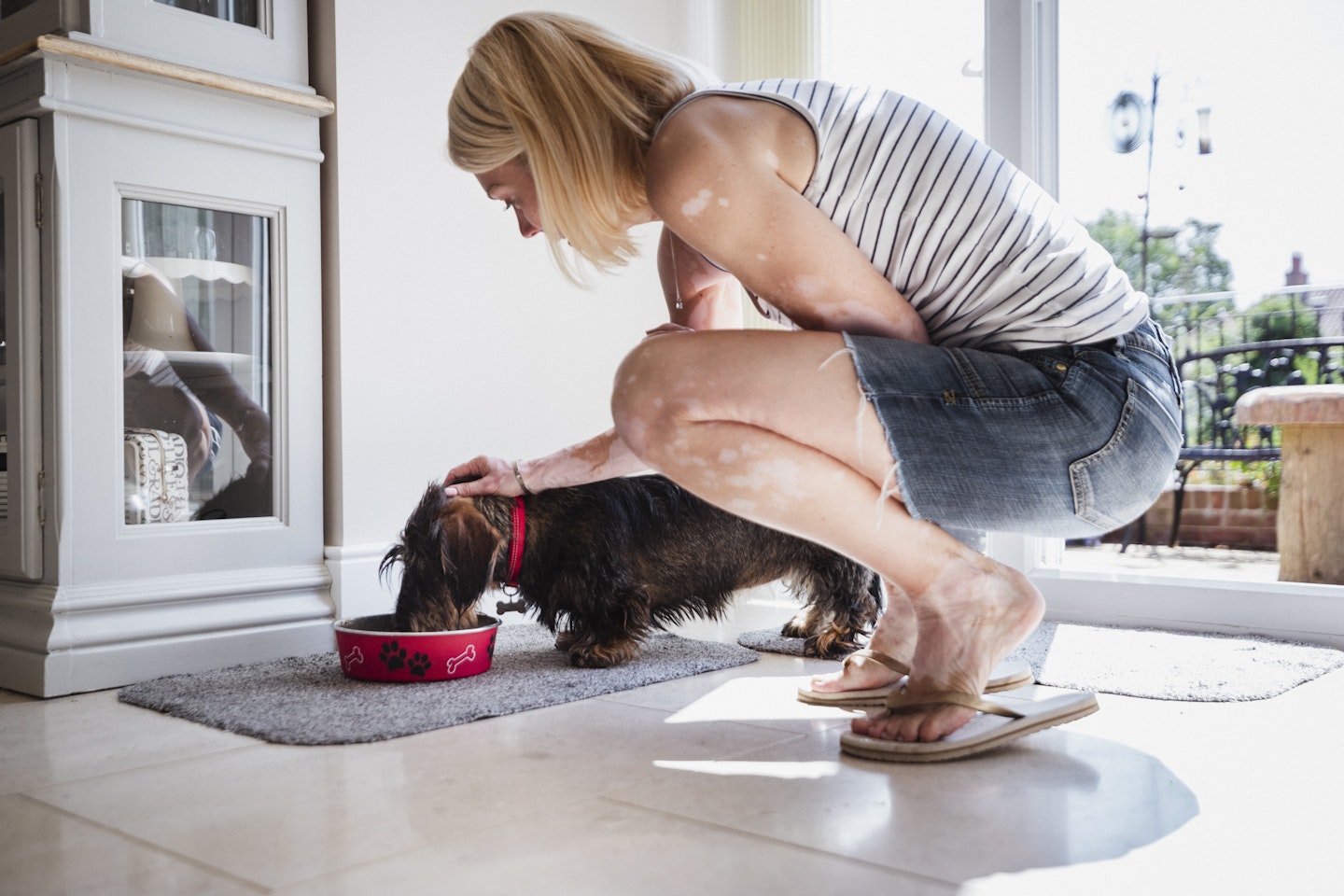
After retirement, it is much harder to find routine in the day. Dogs are loving companions and give structure to the day. Owners still have rituals and routines in order to take care of the dog.
A dog will give you a sense of purpose and if you have days where you are not emotionally or physically yourself, your dog will not be affected by this, they will still want to be around you, they still need you to feed them and take them out for a walk.
Dogs help prevent feelings of loneliness and isolation. They give us a reason to get up in the morning and take care of something that needs them.
6. Dogs make us feel loved and happy

Not only are dogs adorable companions, but they also make us happier. In 2009, there was a study in Japan found that staring into your dog’s eyes raises your level of oxytocin, also known as the “love hormone.” Next time you find yourself watching cute dog videos, you will know why.
As dogs are natural mood boosters, just by petting a dog our spirits are lifted. It is widely discussed that dog owners are less prone to depression than those without pets.
7. They help seniors with cognitive function

Animal-based therapy is becoming increasingly popular in senior care homes as stroking a pet has been shown to decrease agitated behaviours and increase social interaction in patients with dementia.
As dogs give unconditional love and support, it is proven that they help with PTSD and general wellbeing during tough times.
8. Dogs help make a good childhood
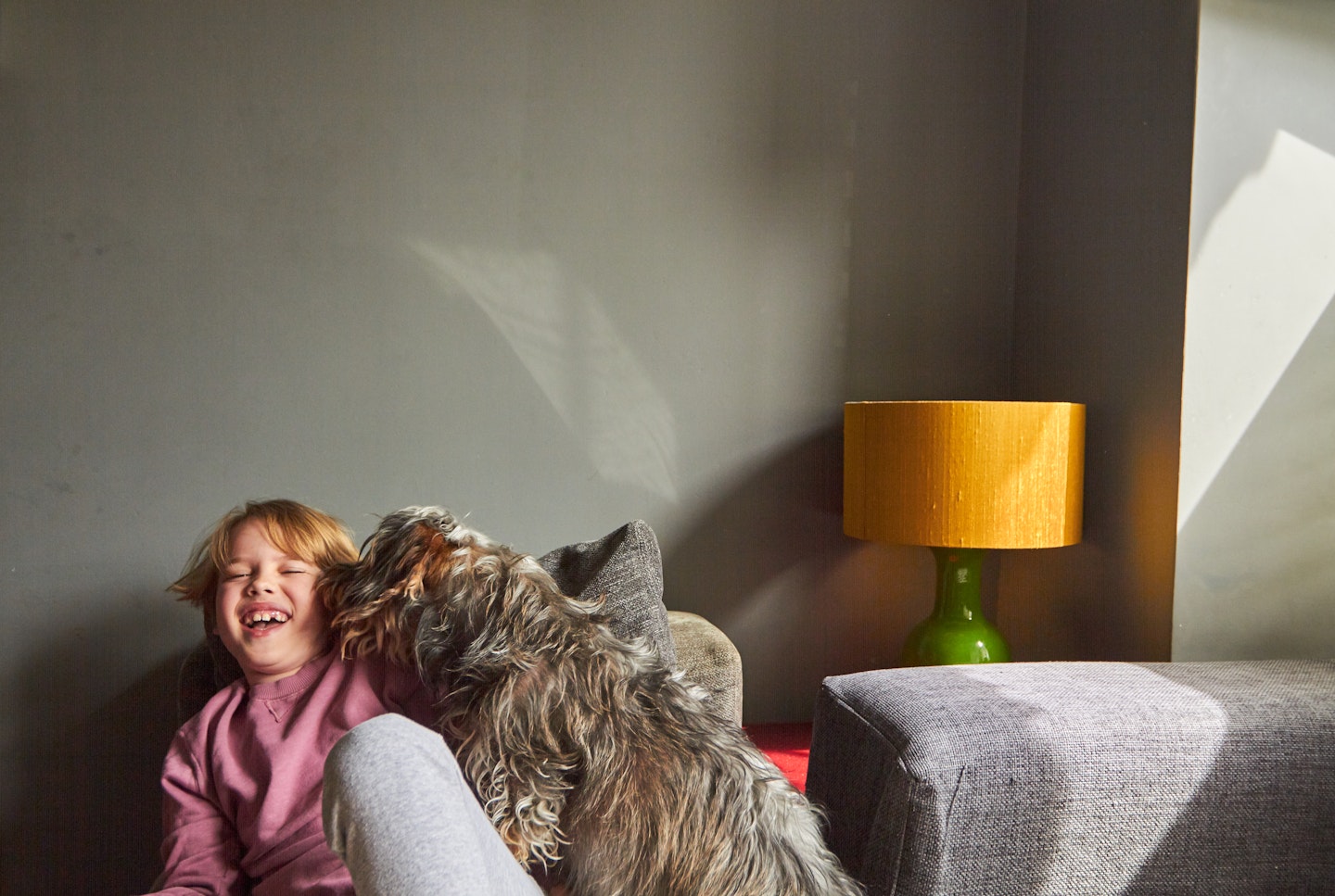
Growing up with a pet helps children learn a sense of responsibility and develop empathy. Research shows that having dogs and cats can actually lower a child’s chances of becoming allergic to pets a child’s chance of becoming allergic to pets by up to 33 per cent, according to a 2004 [study](https://www.jacionline.org/article/S0091-6749){href='https://www.jacionline.org/article/S0091-6749(03)' target='_blank' rel='noopener noreferrer'} in the Journal of Allergy and Clinical Immunology. . It also reduces a child’s risk of developing respiratory and ear infections.
Popular articles to read next
[The best dog raincoats for your adventurous canine friend](http://The best dog raincoats for your adventurous canine friend)
[A guide to dog beds for your furry friend](http://A guide to dog beds for your furry friend)
